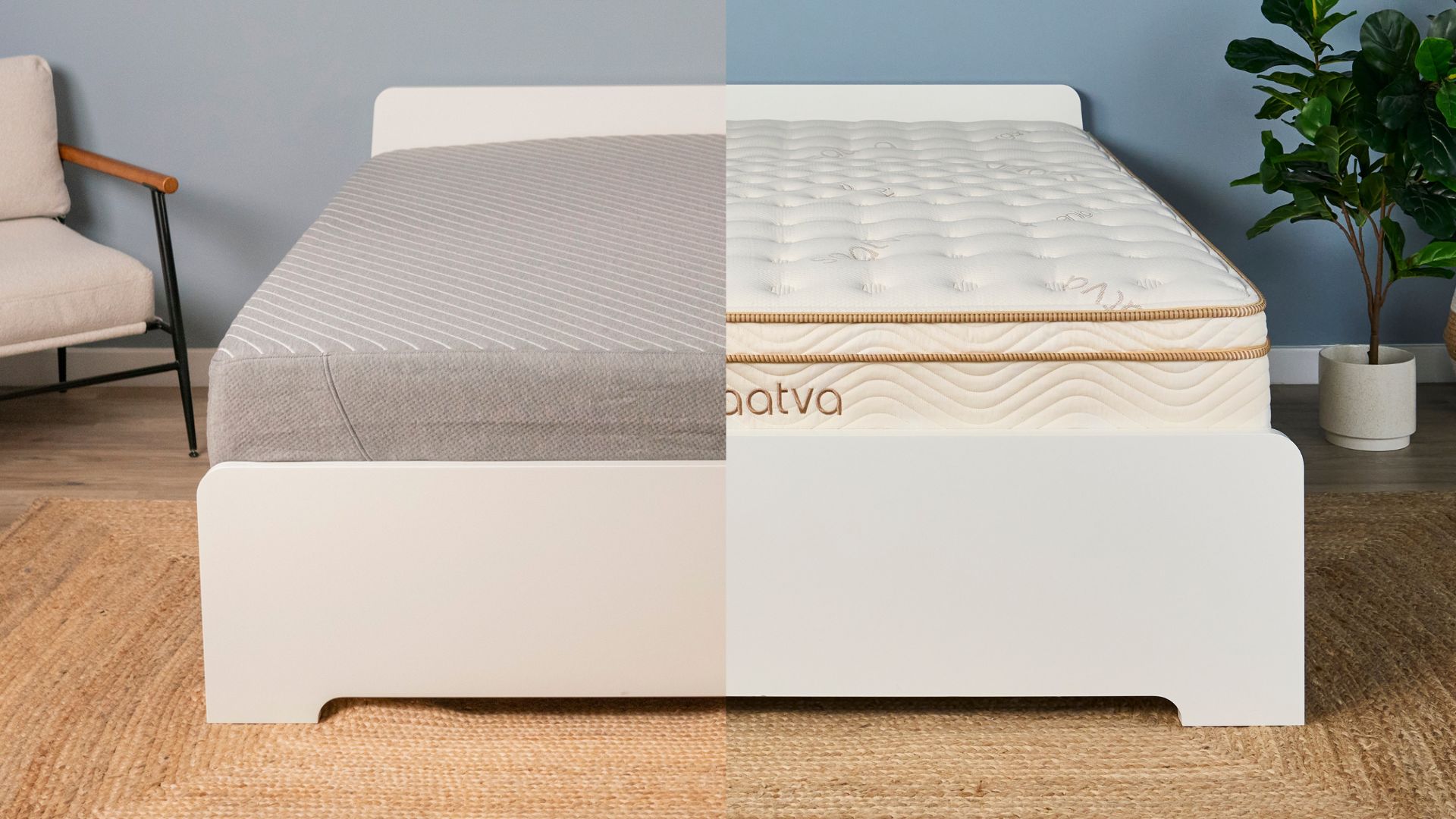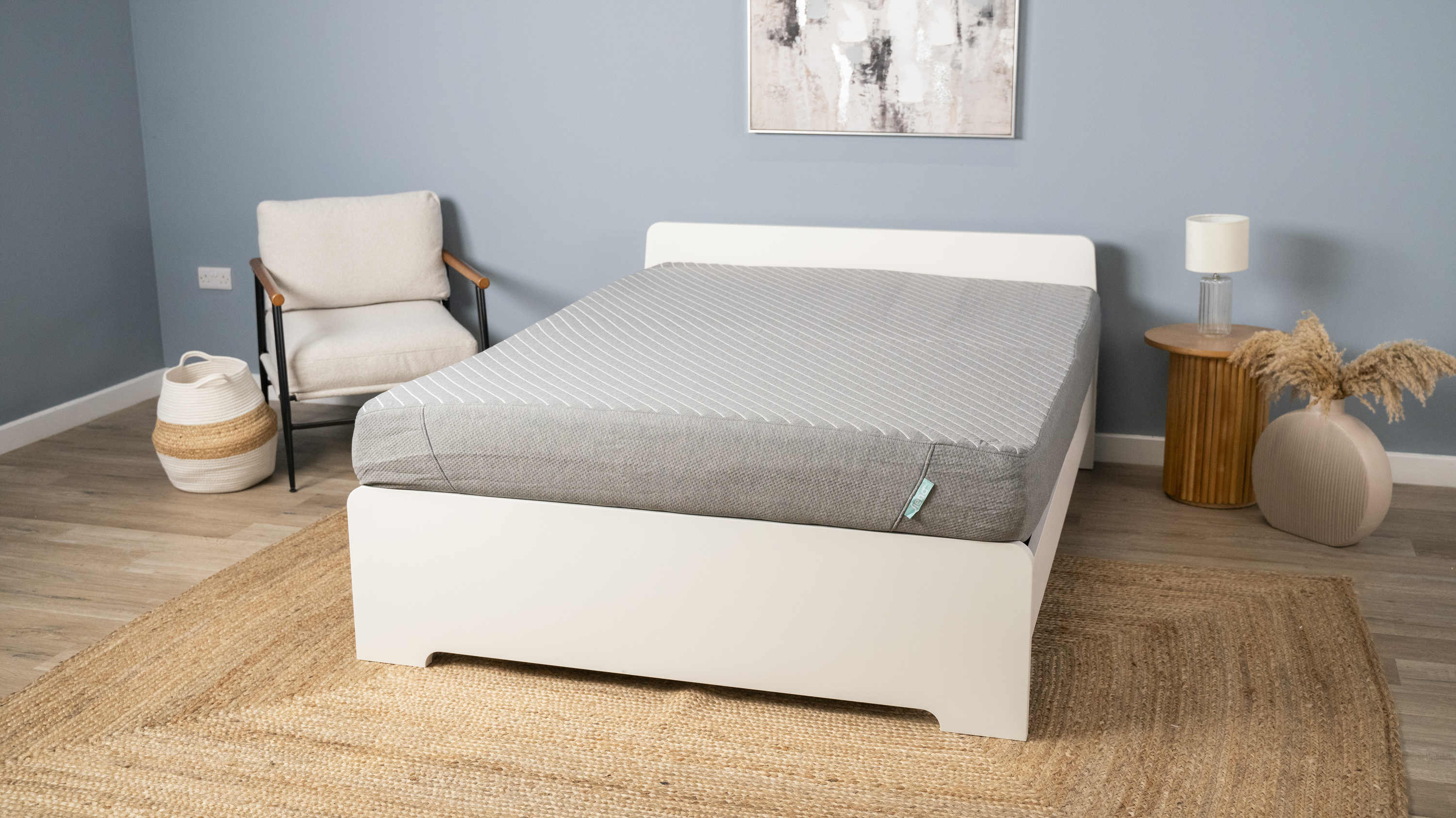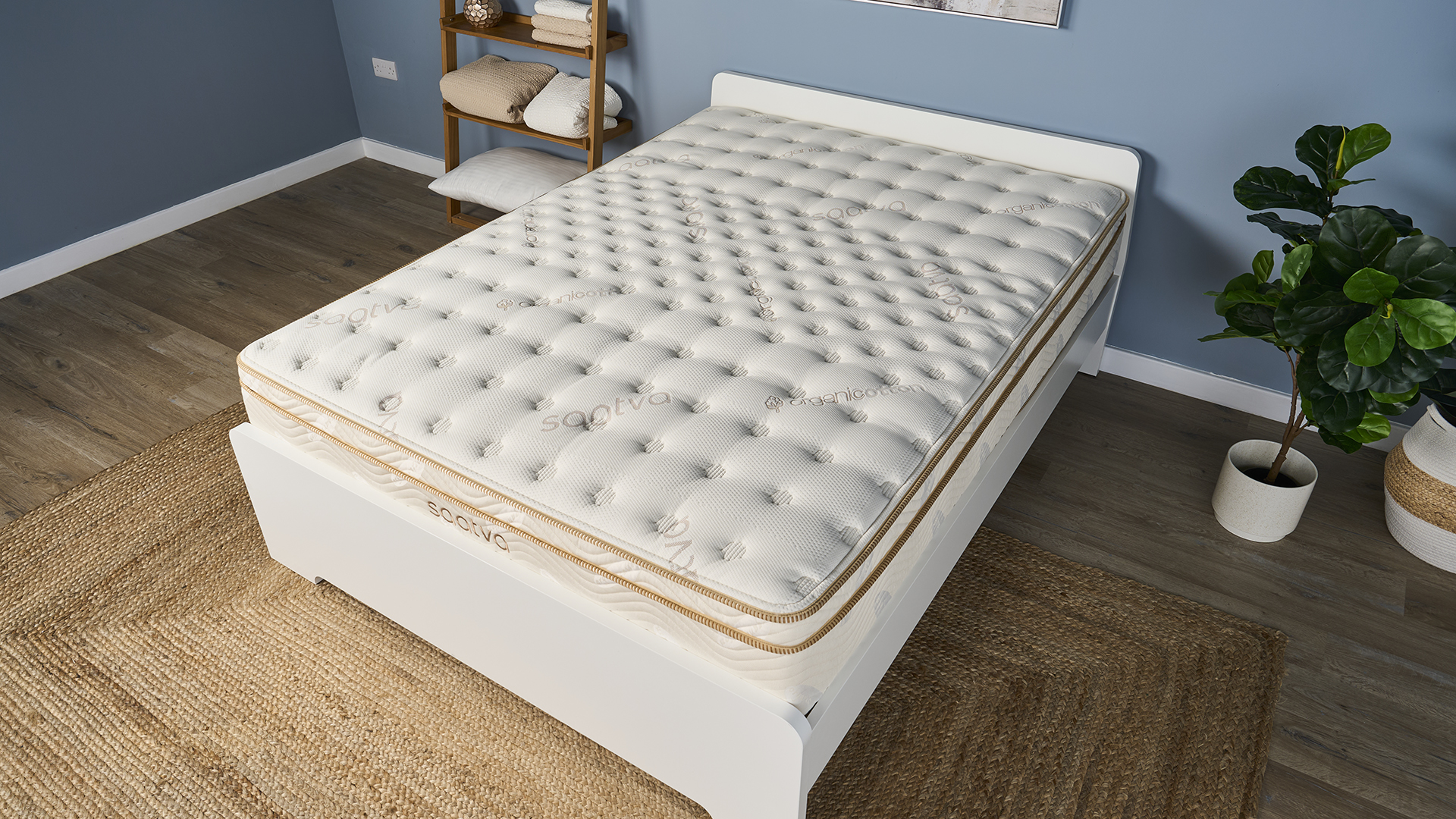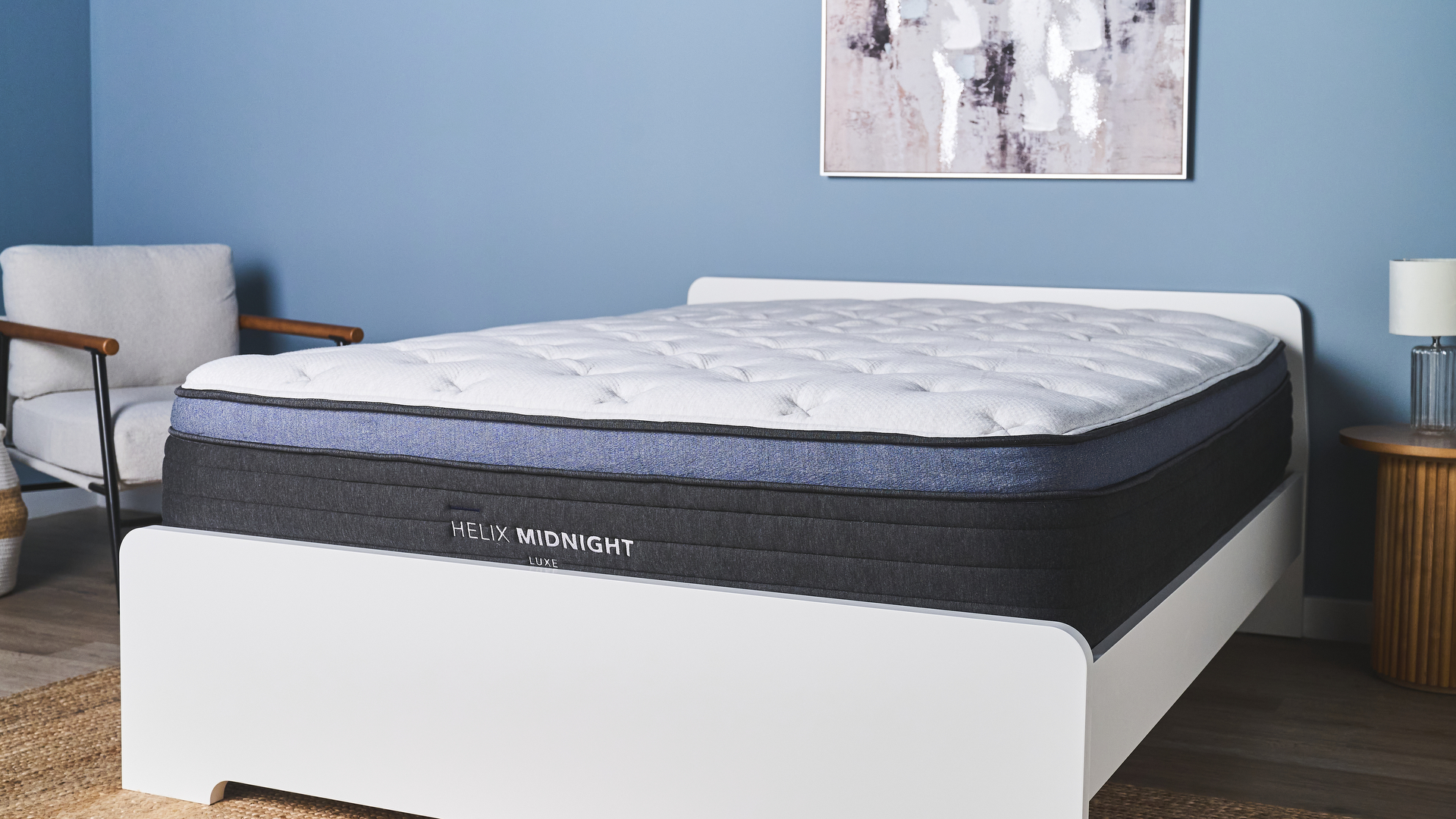Should you buy a cheap mattress and replace it often, or buy a luxury bed and invest in longevity?
We explore why it's better to splash out on a premium bed vs regularly replacing a cheap mattress

Mattresses are an investment item, and if you're willing to pay more upfront, you should have a comfortable bed to last throughout years of sleep. But with budget beds an expanding market, you might be wondering if buying a cheaper mattress and replacing it often is better than investing in one premium bed.
Our top entry in this year's best mattress guide is a premium, and we recommend investing in a higher quality bed. However, a premium mattress might set you back $1,200 for a queen, and will often need replacing after seven to 10 years. But the best cheap mattress might cost you only $400. Even if it only lasts three years, it's still cheaper to replace than the initial cost of a premium bed. However, to save money you might be sacrificing comfort and support,
That's not to mention the effort of disposing old mattresses, plus the cost and the effect on the environment. In this guide, we'll explore whether it's best to pay more for a mattress that will last longer, or if buying and frequently replacing a cheaper mattress in the mattress sales is better for your sleep and budget.
What is an affordable mattress?

The best cheap mattresses provide comfort for a smaller budget. We class a budget mattress as any bed that costs $500 or under for a queen, but if you really want to save, you can get queen mattresses for even cheaper – we have some in our guide to the best cheap Amazon mattresses under $400.
The majority of cheaper mattresses are all-foam beds, built with layers of foam to provide a contoured sleep surface. There are some budget hybrid beds available, but these are rarer, so you're likely to have fewer options. In terms of build, budget mattresses tend to keep things simple. A cheap mattress can still be comfortable and supportive, but it's often hard to find a specialist design (like cooling) in the budget category.
Because the builds are simple, cheaper mattresses also tend to be thin. We recommend a mattress thickness of at least eight inches, and many of the very cheapest mattresses are only six inches. Thinner mattresses often lack pressure relief, and they can also sacrifice durability. We expect a mattress to last for roughly seven to 10 years, but a cheap mattress might start sagging well before this.
Pros of buying and replacing cheap mattresses
✅ It's cheaper upfront: Mattresses are expensive purchases and if you don't have the money for a premium mattress, you can still find good, affordable options. Frequent mattress sales can help you save even more.
Sign up to get the BEST of Tom's Guide direct to your inbox.
Get instant access to breaking news, the hottest reviews, great deals and helpful tips.
✅ It's easier if you're planning on moving: Opting for an inexpensive bed can be a smart choice if you plan on moving within the next year or two. A thin bed is easier to transport and you won't mind if it gets a little roughed up during the move.
Cons of buying and replacing cheap mattresses
❌ Mattresses are difficult to dispose of: We have advice on how to get rid of an old mattress, but big and bulky beds can be hard to get off your hands. You often have to pay for old mattress removal which might mean your cheap bed costs you more than you though it would.
❌ It's worse for the environment: Cheap mattresses are typically made with chemical based foams that are hard (and sometimes impossible) to recycle. Purposely buying cheap mattresses with the intention of trashing them after a few years creates a lot of waste.
❌ Cheap mattresses don't always provide the support you need: Cheaper mattresses are typically thinner and less supportive than premium beds. While a few years on a cheap mattress might not sound too bad, if it's not providing enough support, that can add up to a lot of lost sleep.
What is a premium mattress?

We class a premium mattress as a queen size that costs over $1,500, and an upper mid-range mattress as any bed between $1,200 to $1,500. These are the best luxury mattresses, designed to provide the most comfortable sleep experience.
Typically the best hybrid mattresses fit into this price bracket. There are also all-foam premium beds, including the best organic mattresses that often feature durable natural latex. Premium mattresses tend to have complex, multi-layered designs, and include specialist beds like cooling mattresses and smart mattresses.
Premium mattresses are typically thicker builds, often over 12 inches or more. These deeper builds provide increased pressure relief. Thick premium mattresses should also have good durability, capable of keeping you comfortable for over seven years (some latex mattresses even have a 15 to 20 year expected lifespan).
While a premium mattress is expensive, that price should be reflected in the overall quality of the build. And as another benefit, these beds tend to come with better extras, like a long warranty and mattress trial – peace of mind in case you're not happy with your bed.
Investing in a premium mattress: pros and cons

Pros of investing in a premium mattress
✅ You can choose a specialist bed: If you're after increased cooling, the best mattress for a bigger body, or targeted pain relief, you're going to have to pay for a premium bed. While some cheap mattresses do offer these features, they're rarely as advanced, or as effective, as a more expensive bed.
✅ You have aches and pains: Premium beds tend to have thicker, more supportive builds than cheaper mattresses, offering better support for aching joints. Our guide to the best mattresses for back pain does feature some cheaper options, but the majority of our picks are premium beds.
✅ You want durability: A mattress that lasts longer will be providing you with better support for longer, helping you enjoy more restful sleep. And, of course, replacing a bed can be a complicated job, and one you probably want to avoid as much as possible.
Cons of investing in a premium mattress
❌ It's a lot of money upfront: At Tom's Guide we recommend buying the best mattress you can, but we understand that everyone's budget is different. if you can't afford a premium bed, you should still invest in a cheap mattress that's right for your sleep.
❌ You're not sure what kind of mattress you want: It's frustrating to pay big bucks for a new bed only to discover that it doesn't suit your sleep needs. If you're not sure what type of mattress you need, it might be tempting to opt for a cheaper bed. However, there are still advantages to paying more, as premium sleep brands often offer better sleep trials, allowing you to test the bed before you commit.
Should you buy and replace cheap mattresses or invest in a premium mattress?
While buying several cheap mattresses might cost roughly the same as a luxury mattress, we recommend investing in a premium bed. A premium mattress will have an overall higher build quality, providing you with better supported sleep for longer.
A budget mattresses are inexpensive, but to keep the price down, they often lack the long-term support and pressure relief an adult needs. The durability is also likely to suffer, and you might find your cheap mattress starts sagging after limited use, leading to aches, pains, and even sleep deprivation
In addition, disposing of an old mattress can be a complicated (and potentially expensive) process. It also creates a lot of waste, as cheap mattresses can't always be recycled.
You don't have to pick a premium mattress to enjoy a comfortable and supportive bed. If your budget can stretch to it, there are some excellent mid-range mattresses – like the Nectar Memory Foam Mattress – that deliver a durable build at a lower price. We also have some advice on what to look for in a budget mattress, so you can get more for your money.

Ruth is a staff writer at Tom’s Guide, covering all things mattress and sleep. She has a deep interest in the link between sleep and health, and has tried enough mattresses to know the right bed really can make a difference to your wellbeing. At Tom’s Guide she writes to help people sleep better, from how-tos to the latest deals to mattress reviews, and has interviewed an array of specialists who share her passion. Before joining the team at Tom’s Guide, Ruth worked as a sleep and mattress writer for our sister website, TechRadar.
